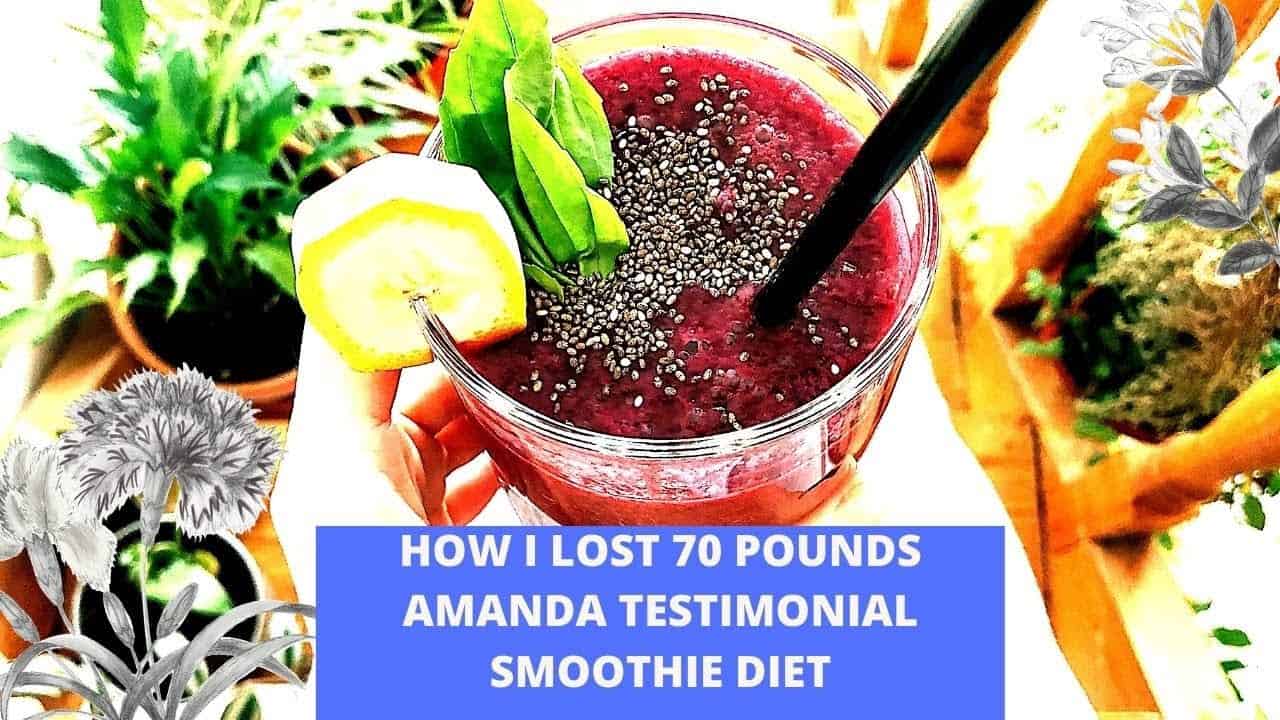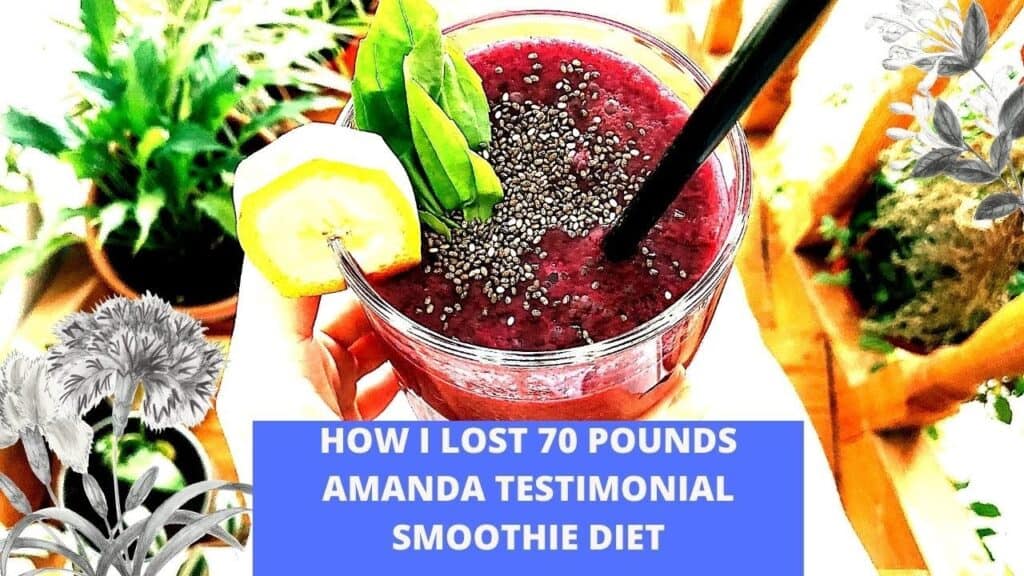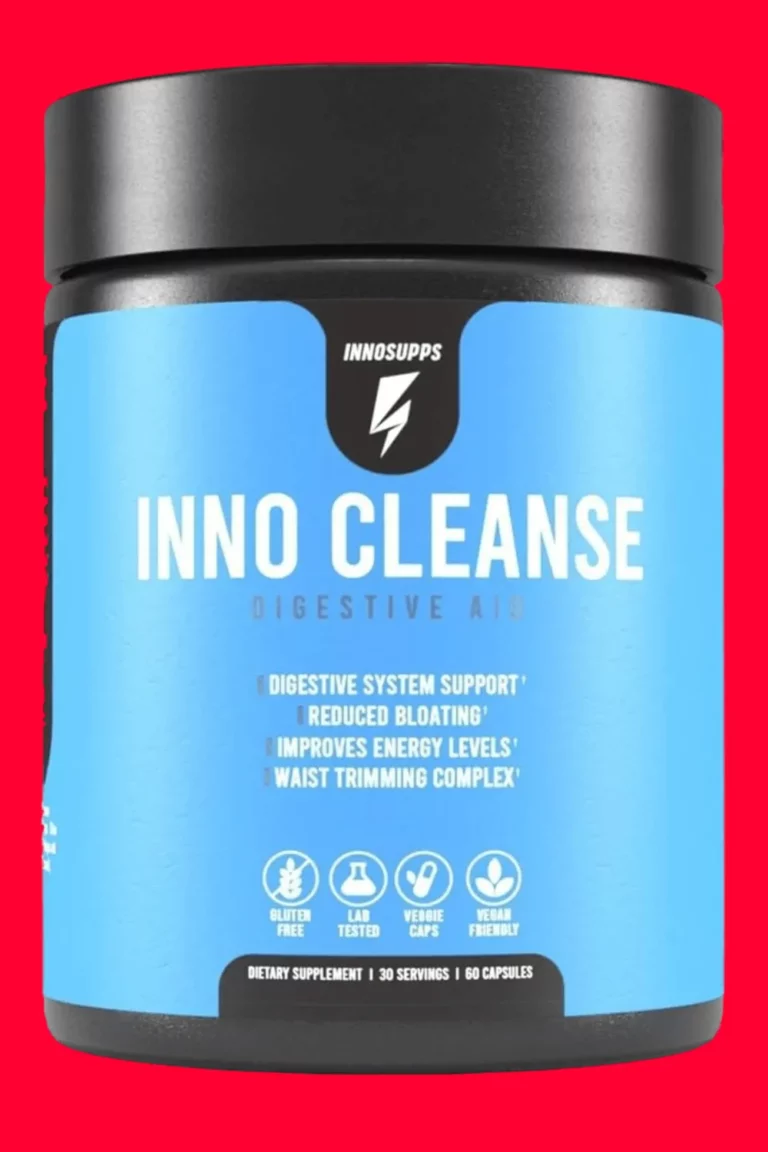Ultimate Guide to the Smoothie Diet
The Ultimate Guide to the Smoothie Diet is a comprehensive resource providing information, tips, and recipes for incorporating smoothies into a healthy and balanced diet.
It includes guidance on selecting nutritious ingredients, preparing delicious smoothies, and utilizing smoothies as a tool for weight loss or overall wellness.
Imagine sipping your way to health with a delicious blend of fruits, vegetables, and nutrients in your glass.
The smoothie diet isn’t just a fad; it’s a lifestyle choice that’s gained momentum for its approach to nourishing the body and promoting weight loss.
With more people aiming for a healthier lifestyle, understanding the ins and outs of this diet is crucial.
The food we eat profoundly impacts our health, energy levels, and body weight.
Exploring the balance between calorie intake and expenditure is key to weight management, while the types of food we consume play a pivotal role in our overall health.
The smoothie diet emerges as a contender in the quest for a sustainable, healthy way of eating.
This ultimate guide dives into the smoothie diet, dissecting its benefits, offering mouth-watering recipes, and sharing real results from those who have blended their way to a healthier body.
It’s not just about weight loss; it’s about understanding the symphony of nutrients that keep our bodies in harmony.
Table of Contents Ultimate Guide to the Smoothie Diet
Body and Weight
The quest for a healthier lifestyle often navigates through the vast sea of diet plans, one of which is the Smoothie Diet.
With an emphasis on replacing daily meals with nutritious smoothies, it’s vital to scrutinize the potential effects on body and weight.
Smoothies, featuring an array of fruits, leafy greens, and other wholesome ingredients, can be a part of weight management.
However, when integrating smoothies into your meals per day, understanding the balance of calorie deficit, natural sugar, and essential nutrient intake is crucial for a healthier lifestyle.
Understanding the Importance of a Healthy Body Weight
Adhering to a Smoothie Diet, especially a structured program like the 21-Day Smoothie Diet, can support individuals in their pursuit of a healthy body weight.
By incorporating a variety of fruits and green vegetables into your diet, you’re not only delighting your taste buds but also fueling your body with vital nutrients.
The natural sugar present in fruits, balanced with the fiber and nutritional content, provides a healthier alternative to processed sugar intake from conventional snacks or fruit juices.
One of the significant health benefits arises when smoothies replace other high-calorie or sugary food choices, creating a caloric deficit conducive to weight loss.
Moreover, green smoothies rich in leafy greens offer substantial fiber, which can enhance satiety, diminish the absorption of fats and sugars, and help in maintaining a nutrient-dense low-calorie diet—keeping calorie intake in check.
This diet aligns with a healthy lifestyle that advocates for a long-term approach.
By encouraging healthier choices and mindful portion control, individuals learn to embrace this change not as a transitory weight loss program but as part of a continual journey towards well-being.
It is worth noting that for balanced diet adherents, a health coach can guide the smooth transition from a diet plan to a permanent lifestyle adjustment.
The Role of Body Composition in Overall Health
A critical factor often overlooked in diet discussions is the impact of body composition on overall health.
Weight isn’t the only metric to focus on—muscle mass, bone density, and fat distribution also significantly influence health outcomes.
The Smoothie Diet, while it centers on meal replacements with high-nutritional content, also shines a spotlight on the need for a variety of nutrients to maintain a balanced body composition.
In crafting your smoothie, incorporating protein powders or lean protein sources can ensure an adequate protein intake, key to preserving muscle mass.
Complementing smoothies with meals containing lean protein and other sources of essential nutrients like healthy fats and complex carbohydrates can provide a complete dietary framework for not only a calorie deficit but also for a sturdy foundation of health.
Smoothies span beyond merely fruit; they often include green vegetables, nut butters, and seeds, contributing essential micronutrients and healthy fats.
This bountiful mix, when part of a balanced diet with whole foods and regular physical activity, can create an ideal environment for sustaining a healthy body composition.
A balanced diet doesn’t mean shunning entire food groups or relying solely on liquid nutrition.
It involves a well-rounded approach that includes solid food, a variety of protein sources, and other vital nutrients.
The success of a healthy lifestyle is anchored in the long-term embracement of nutritionally rich foods and consistent exercise for a dynamic and healthy body composition.
Ensuring this equilibrium is what truly defines the transition from a simple diet plan to a lifetime commitment to superior health and a robust body.
It’s the blend (quite literally and metaphorically) of a nutritional spectrum that fortifies a body poised to guard against chronic diseases and achieve a healthier lifestyle.
The Impact of Food on Your Body and Weight
The food we eat plays a pivotal role in determining both our body weight and overall health.
The rising popularity of the Smoothie Diet is testament to the modern quest for convenient nutrition; yet, it’s important to approach it with knowledge and caution.
Smoothies integral to this diet are often fraught with a high sugar content if not prepared mindfully, raising concerns about obesity, unhealthy weight gain, and dental issues.
Moreover, indulging in smoothies laced with added sugars could lead to long-term health conditions like fatty liver, high cholesterol, insulin resistance, and heart disease.
Conversely, when designed with a keen eye on nutrition, smoothies rich in fiber aid in digestion and can be a boon for those aiming for healthier weight loss.
The 21-Day Smoothie Diet leverages this principle by substituting regular meals with low-calorie, nutrient-packed alternatives, conceivably steering individuals toward swift weight loss.
The intake of these nutrient-dense beverages can also temper food cravings and appetite.
However, care should be taken; the goal isn’t to merely cut calories but to nourish the body rightly to foster genuine health.
Exploring the Relationship Between Calories and Weight
Understanding the link between calorie intake and weight management is critical.
An average adult might need around 2,080 calories daily to maintain their weight, but this figure can fluctuate based on factors such as individual metabolism and physical activity levels.
Store-bought smoothies often contain hidden calories, some peaking at a staggering 500 to 600 calories per serving, which can lead to unintended weight gain if not factored into the daily caloric allowance.
The USDA recommends a daily caloric intake of approximately 1,500 calories for weight management, emphasizing the need for a calorie deficit to shed pounds.
The Smoothie Diet often underdelivers in terms of protein, which is fundamental to overall health and weight management.
This nutrient not only builds muscle but also helps regulate the appetite, thus playing a crucial role in weight control.
The Link Between Diets and Weight Loss
The 21-Day Smoothie Diet, when followed diligently, promotes weight loss due to the underlying mechanics of reduced caloric consumption and nutrient-rich ingredients.
Smoothies make it effortless to boost your intake of fruits, vegetables, and other health enhancers, delivering antioxidants and a spectrum of vitamins to enhance overall health and support improved body composition.
Yet, the satiation offered by liquid diets may not match that of solid foods, leading to hunger pangs and a potential subsequent weight gain when the diet ends.
While they present an easy vehicle for vegetable intake, the restrictive nature and potential nutrient deficiencies of liquid diets like the Smoothie Diet call its sustainability as a long-term solution into question.
Identifying the Healthiest Foods for Weight Management
For effective weight management, the Smoothie Diet endorses replacing two meals a day with smoothies chock-full of fibers and essential nutrients, yet low in calories.
These carefully concocted drinks can help maintain a calorie deficit while still providing the body with the sustenance it needs.
Yet, this is no panacea; solely relying on smoothies can result in a restrained range of nutrients and is not recommended for the long haul.
Incorporating protein-rich smoothies can temper cravings, deliver consistent energy, and curtail overeating.
Fiber found in these mixtures fosters fullness, mitigating the risk of excessive calorie intake.
The efficacy of the Smoothie Diet for weight management ultimately hinges on the judicious selection of ingredients, ensuring every sip is laden with nutrition without tipping the scales on calorie count.
The Role of Nutrients in Maintaining a Healthy Body
A cornerstone of a healthier lifestyle, the role of nutrients is both foundational and transformative for maintaining a healthy body.
Engaging in a nutritional variety not only guarantees a balance of essential nutrients critical for overall well-being but also fortifies the body against common health issues.
When it comes to weight management, incorporating soluble fiber sourced from a wealth of fruits and vegetables within smoothies helps minimize the absorption of high-energy-dense nutrients.
This, in turn, can ease the path towards weight control.
Moreover, the micronutrient spectrum found in plant-based ingredients – vitamins, minerals, and antioxidants – are vital for an optimally functioning immune system.
They support the body’s defenses against illness, bolster cellular repair, and enhance metabolic efficiency.
Incorporating a blended array of whole foods into smoothies delivers a convenient, delicious, and potent method for enriching your diet, simultaneously addressing the body’s nutritional needs and heightening your journey toward a healthier lifestyle.
Essential Nutrients for Optimal Functioning
Achieving an ideal health state demands more than just a focus on macro elements like protein, fats, and carbohydrates; it also entails a treasure trove of essential micronutrients found abundantly in fruits and vegetables.
These components meet a host of bodily functions from cellular recovery to energy synthesis and maintaining physiological balance.
In the realm of smoothies, you can harness the power of these micronutrients by including a variety of fruits, vegetables, nuts, and seeds, each contributing their unique profile to bolster your body’s health artillery.
Protein: The Building Block for Muscles and Body Composition
Proteins reign as the quintessential building blocks for our muscles, tissues, and overall body composition, playing a vital role across all life stages and lifestyles.
Smoothies, when fortified with high-quality protein sources such as lean protein powders, Greek yogurt, or nut butters, transition from being mere drinks to potent meal replacements – sustaining bodybuilders, athletes, as well as those with increased protein demands like pregnant women and older adults.
Despite the plethora of benefits, it’s crucial to remain cognizant of the potential pitfalls of excess smoothies high in sugars.
This can steer us towards various health concerns, from dental deterioration to obesity risk.
To circumvent these challenges, one must be diligent in selecting ingredients that mitigate added sugars, prioritizing natural sugars from fruits and complementing them with robust protein sources.
This balanced approach ensures that while muscle building and repair are supported, overall health is not compromised.
The Importance of Fiber in a Healthy Diet
Fiber stands as an unsung hero in the diet, with studies associating a high-fiber intake with reduced risks of heart disease, stroke, type 2 diabetes, and bowel cancer.
By curbing the absorption of certain nutrients like fats and sugars, fiber also plays a pivotal role in energy intake regulation.
Moreover, a high-fiber diet can support digestive health and fend off constipation, making it an important player for gastrointestinal wellness.
Smoothies, enriched with fruits, vegetables, and additional fibrous ingredients like chia seeds or flaxseeds, can significantly contribute to daily fiber consumption.
This not only ensures a balanced diet but also extends the feeling of fullness, curtailing the propensity to overeat and subsequently aiding in weight management efforts.
It’s refreshing to know that a well-crafted smoothie can be both a nutritious delight and a strategic ally in our quest for health maintenance and disease prevention.
The Connection Between Nutrition and a Healthy Lifestyle
The essence of a smoothie diet lies in its vibrant amalgamation of fresh produce, which serves as a gateway to optimized mental and physical health.
A healthy lifestyle is closely knitted with nutrition, where every sip of a smoothie is a leap towards mental clarity and robustness.
Incorporating a range of ingredients such as leafy greens, an assortment of fruits, nutritious seeds, and heart-healthy nut butters ensures a daily intake of complex carbohydrates, essential fibers, and powerful antioxidants—all known to support mental well-being.
A daily smoothie ritual is more than a meal replacement strategy; it stands as a beacon of health benefits.
The fiber-rich content of leafy greens and fruits supports the flourishing of beneficial gut bacteria, fortifying the immune system.
This, combined with antioxidants fighting free radicals, shields against age-related cognitive decline and guards against chronic diseases.
With the heightened consumption of fruits and vegetables on a smoothie diet, the body’s antioxidant levels spike, oxidative stress diminishes, and mental performance thrives.
Embarking on a 21-Day Smoothie Diet can render a plethora of health boons including radiant skin, a happier gut, increased vitality, reinforced immunity, and weight loss, which are all indicative of a healthier lifestyle.
When meal replacements are attentively designed, the smoothie diet becomes a conduit for long-term wellness.
The Role of Diet in Preventing Chronic Diseases
Diving deeper into the health mosaic, diet plays a paramount role in warding off chronic diseases.
A smoothie diet, rich in nutritional content, weaves a protective layer against the onset of chronic conditions such as heart disease, diabetes, and certain cancers.
The natural sugar from fruits, coupled with the low calorie yet nutrient-dense profiles of green vegetables, contributes to a calorie deficit without compromising vital nutrients.
This approach can help manage blood sugar levels and promote heart health.
The inherent power of diet in preventing chronic diseases isn’t limited to what it contains but also to what it omits.
Reduced sugar intake, thanks to the avoidance of processed fruit juices and excess sweeteners, lowers inflammation and diminishes the risk factors associated with chronic illnesses.
With the right blend, the smoothie diet could become a cornerstone in disease prevention and a bastion for a longer, healthier life.
How a Balanced Diet Supports Overall Well-being
A balanced diet is the cornerstone of a healthy lifestyle.
It encompasses a myriad of benefits that extend beyond the simplistic goal of weight management.
The medley of fruits and vegetables so fundamental to the smoothie diet provides a plethora of fiber, antioxidants, and other essential nutrients that are instrumental for overall well-being.
Variety, a factor critical in preventing dietary boredom, ensures adherence to a healthy eating regimen and facilitates joy in nourishment.
Collaborating with healthcare professionals or dietitians can tailor specific diet plans, like the introduction of protein powders or certain leafy greens, to match individual health objectives.
It’s essential to perceive our dietary habits not as temporary shifts but as permanent transformations that are balanced, diverse, and enjoyable for enduring success.
This focus on long-term lifestyle changes rather than fleeting diets can help enhance gut health, nurture mental sharpness, and support vital bodily functions.
Tips for Incorporating Healthy Habits into Your Lifestyle
A smoothie diet, rich in health benefits, serves as an excellent starting point but achieving a healthy weight and lifestyle calls for sustainable eating habits.
Here are a few actionable tips:
- Aim to increase the variety of fruits, vegetables, lean proteins, and whole grains to maintain nutritional balance.
- Be mindful of the calorie content in smoothies, ensuring they are part of a comprehensive diet that meets daily nutritional needs.
- Consider the practicality of meal replacements in social situations, and find a balance that allows for flexibility while maintaining a healthy lifestyle.
Adhering strictly to a smoothie diet can occasionally be challenging and impractical.
Thus, integrating solid food meals into daily meals is imperative for attaining the array of vital nutrients necessary for holistic health.
Cultivating sustainable practices, like enjoying a green smoothie as part of breakfast or a post-workout meal, will underpin successful weight management and a thriving healthy living journey.
The Benefits of Smoothies in a Healthy Diet
Smoothies have become a cornerstone in the quest for a healthy diet, providing a cascading range of benefits that enrich our nutritional landscape.
They feature a symphony of vitamins, minerals, fiber, and antioxidants, making them not just a feast for the senses but also a powerhouse of health.
Their easily digestible form ensures that our bodies can absorb these vital nutrients effortlessly.
For those constantly on the go, smoothies prove to be a saving grace.
They provide the ultimate convenience, allowing busy individuals to enjoy a nutritious snack that is both quick to prepare and portable.
This aspect is particularly beneficial as it addresses the concerning trend of low fruit and vegetable consumption among many Americans, by stealthily boosting their daily intake.
The sheer diversity of ingredients that can be blended into a smoothie means that each sip is a step towards reducing the risk of modern-day ailments such as diabetes, obesity, cardiovascular diseases, and even cancer.
Furthermore, for fitness enthusiasts and those with muscle gain or repair goals, smoothies offer a creative canvas to increase protein intake.
Ingredients such as milk, yogurt, and protein powders can be added to create a tailored beverage that supports their specific nutritional demands.
Exploring the Nutritional Content of Smoothies
While smoothies are often lauded for their health benefits, it is crucial to remain vigilant regarding their nutritional content.
Especially when store-bought, they can disguise unexpected amounts of sugar, fat, and calories, potentially surpassing the advised calorie intake for a single meal.
The concealed sweeteners, whether in a commercial blend or a homemade concoction, can sneak in excessive sugar, risking unintended weight gain.
This caution aside, the fundamental advantage of the smoothie diet is undeniably its bolstered nutrient intake.
Through the deliberate choice of fruits, vegetables, and health-promoting extras, smoothies are transformed into vessels of wellness—rich in fiber, which fosters satiety and supports the mechanics of our digestive health.
This very fiber plays a contributing role in diminishing the likelihood of developing conditions such as heart disease and stroke, as well as managing diabetes and cancer risk.
The Potential Health Benefits of Green Smoothies
Stepping into the verdant world of green smoothies opens up an arena brimming with wellness opportunities.
These beverages are meticulously concocted by blending fruits with green vegetables—offering a straightforward strategy to meet daily nutritional quotas.
The fiber retained from whole foods like spinach, kale, and an assortment of microgreens, imparts to green smoothies a gift for improving digestion and amplifying health.
Packed to the brim with a spectrum of vitamins, minerals, phytonutrients, flavonoids, and antioxidants, green smoothies operate on a cellular level to uplift health profiles and invigorate energy reservoirs.
The abundance of fiber cultivates an environment conducive to sustainable weight management, while also aiding in skin and tissue health, thanks to the rich presence of vitamin C and copper instrumental in collagen production.
Yet, as with any diet, balance is key.
Green smoothies should complement an overall healthy diet to temper the risk of high sugar intake, unnecessary calories, and an imbalance in essential nutrition that might arise from excluding other food groups.
Understanding the 21-Day Smoothie Diet Plan
The 21-Day Smoothie Diet wades through the nutritional tide with a clear structure: two meal-replacement smoothies flanking one full solid meal and healthy snacks throughout your day.
This regimented plan ensures that while the smoothies remain low in calories and rich in fruits and vegetables, they may fall short on protein and healthy fats—an essential consideration for maintaining a well-rounded diet.
Weight loss within this diet typically arises from the calorie deficit it creates, yet it’s imperative that the solid meal is not calorically dense to thwart the diet’s effectiveness.
Aiming for a protein threshold of at least 50 grams daily is key, balancing out the potential deficiency from the lower protein content in smoothies.
At its core, the 21-Day Smoothie Diet is a prologue to healthier dietary habits, aspiring to segue individuals into a balanced and long-lasting dietary path beyond the initial three-week period.
Crafting Nutritious and Delicious Smoothie Recipes
Crafting a smoothie is akin to painting: a great recipe combines a palette of colorful, nutrient-dense ingredients that result in a culinary masterpiece tantalizing to the taste buds and supremely beneficial to the body.
To create such nutritious concoctions, consider incorporating avocados for their healthy fats, nuts and nut butters for a satisfying hint of richness, flaxseed and walnuts for a boost of omega-3 fatty acids, and alternative dairy products like soymilk and tofu to cater to those seeking plant-based options.
The innate vitamin and mineral content in smoothies can act as a bulwark for the immune system, offering a natural charge of energy without the need for artificial stimulants.
Smoothies also tackle a major public health issue: fiber deficiency.
By routinely including such fiber-rich beverages in your diet, you substantially decrease the risk of several chronic diseases.
The key lies in using whole ingredients—raw or frozen fruits and vegetables without the pitfalls of added sugar and opting for whole grains, proteins sources, and healthy fats to achieve a well-rounded meal in a glass.
Choosing a Variety of Fruits and Vegetables for Your Smoothies
Akin to a rainbow, a wide array of fruits and vegetables in smoothies ensures a presentation of flavors and a treasure trove of nutrients, amplifying the joy of consumption and fostering a long-term, sustainable path towards weight management.
The versatility of these ingredients means that your palate never tires and your body consistently obtains a spectrum of essential micronutrients, such as vitamins A, B, C, D, E, and K and minerals like zinc and magnesium, to fortify your immune defenses.
Soluble fiber from these ingredients plays a precise role in optimizing nutrient absorption—aiding in the control of calorie intake by slowing the digestion of fats and sugars.
The water content in fruits and vegetables adds volume without heavily tipping the caloric scale, promoting a sense of fullness that discourages overeating.
Furthermore, the rich compendium of antioxidants they contain becomes a formidable force against potential viral attackers, bolstering your smoothie’s role in immune support.
Incorporating Protein Sources into Your Smoothie Recipes
Protein’s critical role in the diet cannot be understated, especially in smoothies where it may not be naturally abundant.
Integrating high-quality protein sources such as milk, yogurt, or plant-based alternatives like almond milk and soy yogurt can significantly enhance the smoothie’s nutritional caliber.
The inclusion of nuts, seeds, or protein-rich tofu contributes not just to the beverage’s textural depth but also helps to retain muscle mass while following a calorie-restricted diet.
For those seeking a substantial protein punch, protein powders sourced from whey, casein, or plant-based ingredients like peas and brown rice are ideal.
These powders can effectively quell hunger pangs and fuel the body with sustained energy, primarily because proteins require more time to digest than simple carbohydrates.
This sustained digestion leads to prolonged satiety, helping to curb the desire for snacking and support weight control efforts.
Tips for Maintaining a Balanced Diet While on a Smoothie Plan
When venturing on a smoothie-based diet plan, keeping the scales tipped towards balanced nutrition is paramount.
Here are some tips to ensure your foray into the world of blended beverages remains a wholesome one:
- Diversity is Key: Rotate your ingredients regularly to avoid nutritional gaps or excesses.
- Include a variety of fruits, vegetables, proteins, healthy fats, and fiber sources in your smoothie roster.
- Lean Towards Vegetables: To prevent sugar overload from fruits, make green vegetables the star of your smoothies.
- They offer the same nutritional benefits with fewer calories and natural sugars.
- Whole Foods over Supplements: Aim to get your nutrients from whole food sources as much as possible, reserving powders and supplements as an occasional convenience rather than a staple.
- Mind Your Portions: Remember that smoothies are part of your daily caloric intake; thus, portion control is essential, especially if you are using the smoothie as a meal replacement.
- Solid Food Balance: Ensure your solid meals are nutritionally robust, focusing on lean proteins, whole grains, and a bounty of vegetables to round out the rest of your day’s diet.
By following these tips and incorporating smoothies as a complement to a varied and balanced diet, you’ll reap the benefits of this nutritious habit while promoting a healthier lifestyle overall.
Potential Drawbacks of a Smoothie-Based Diet
A smoothie-based diet can seem like a refreshing and convenient way to nourish the body, but it is essential to be wary of its potential drawbacks.
One significant concern is the risk of nutritional deficiencies; relying on smoothies to replace two or more daily meals can lead to difficulties in meeting the body’s needs for essential nutrients such as protein, healthy fats, and a complete range of vitamins and minerals.
This can pose a risk to overall health and vitality.
Furthermore, the risk of consuming too much sugar is increased with smoothies, especially if there is an over-reliance on fruit or sweetened ingredients.
This can cause blood sugar spikes and crashes, leading to feelings of lethargy and even posing long-term health risks.
It’s worth noting that pureed fruits in smoothies often lack the intact fiber found in whole fruits, which can result in decreased satiety compared to consuming solid foods.
This might lead to increased hunger and the likelihood of overeating to feel satisfied.
Moreover, the potential lack of adequate protein in a smoothie diet is an issue.
Protein is essential for maintaining muscle mass and keeping hunger at bay, and yet a purely smoothie-based meal plan might fall short in providing enough of this crucial macronutrient.
Lastly, the sustainability of a smoothie-only diet is questionable.
Its restrictive nature may not only prove challenging to maintain over the long haul but could also pave the way for weight regain and nutritional imbalances once regular eating patterns resume.
The Importance of Including Solid Foods in Your Diet
Embracing solid foods in your diet is critical for achieving a well-rounded approach to nutrition.
Solid meals are typically more balanced, often providing a hearty source of lean protein that’s vital for muscle repair, immune function, and overall health.
When choosing to include smoothies in one’s dietary regimen, they should complement, not exclusively define, the diet.
In addition to smoothies, consuming solid meals rich in whole foods is essential for an increased intake of fiber, which nurtures gut health and optimizes digestion.
By integrating two nutritious snacks and one substantial solid meal into the daily routine, one can maintain a balanced diet rich in essential nutrients and energy.
Meals should be carefully curated to be low in sugar and high in fiber, which provides a slow release of energy and helps in promoting a feeling of fullness that can last throughout the day.
A balanced diet that marries the benefits of smoothies with nutrient-dense solid foods is the cornerstone of a comprehensive health strategy, ensuring that all nutritional needs are met for optimal health and well-being.
Managing Sugar Intake and Blood Sugar Levels on a Smoothie Diet
When navigating a smoothie diet, it’s imperative to manage sugar intake to maintain stable blood sugar levels.
To minimize sugar content, it’s advisable to blend a balanced mix of fruits and vegetables, making green vegetables a larger part of the equation to avoid the spikes in sugar that fruit-heavy smoothies could cause.
Additionally, incorporating protein into smoothies is pivotal, as it contributes to muscle maintenance and extends the duration of fullness after drinking a smoothie.
Healthy fats are also essential additions, bringing satiety and assisting the body in shifting its energy source from carbs to fats.
Nevertheless, without careful consideration, a smoothie diet could still result in elevated sugar intake, potentially setting the stage for issues like insulin resistance and unwanted weight gain.
Moreover, one must be watchful for potential nutrient deficiencies that can arise from a diet overly reliant on smoothies.
Many essential nutrients found abundantly in whole foods may be present in less diversity and abundance in a purely smoothie-based diet.
Avoiding Rapid Weight Loss and Ensuring Long-Term Success
Rapid weight loss programs such as the 21-Day Smoothie Diet might offer immediate results, yet transitioning to a balanced eating pattern, inclusive of solid foods, and practicing regular physical activity, is fundamental for enduring health and maintaining a healthy weight.
Lifelong wellness is anchored in sustainable lifestyle changes that encompass a variety of whole foods, mindful eating habits, and an active lifestyle.
After completing a quick-fix weight loss program, integrating mindful eating practices with a focus on whole foods is indispensable for preserving the weight loss results achieved.
It’s also essential to prioritize hydration; water plays a key role in digestion, metabolism, and the body’s natural detoxification processes.
While short-term weight loss may be achievable with the 21-Day Smoothie Diet, the challenges of nutrient deficiencies and maintaining weight loss post-diet underline the necessity for a balanced approach.
Meal replacements may not offer a sustainable calorie, protein, carbohydrate, and fat balance required for long-term health and adherence, underscoring the importance of a varied diet for persisting success in weight management.








